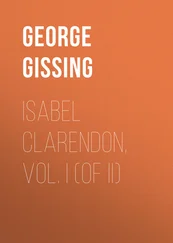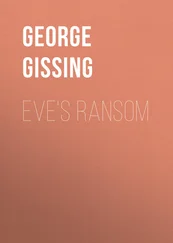George Gissing - Thyrza
Здесь есть возможность читать онлайн «George Gissing - Thyrza» — ознакомительный отрывок электронной книги совершенно бесплатно, а после прочтения отрывка купить полную версию. В некоторых случаях можно слушать аудио, скачать через торрент в формате fb2 и присутствует краткое содержание. Жанр: foreign_prose, literature_19, foreign_antique, на английском языке. Описание произведения, (предисловие) а так же отзывы посетителей доступны на портале библиотеки ЛибКат.
- Название:Thyrza
- Автор:
- Жанр:
- Год:неизвестен
- ISBN:нет данных
- Рейтинг книги:3 / 5. Голосов: 1
-
Избранное:Добавить в избранное
- Отзывы:
-
Ваша оценка:
- 60
- 1
- 2
- 3
- 4
- 5
Thyrza: краткое содержание, описание и аннотация
Предлагаем к чтению аннотацию, описание, краткое содержание или предисловие (зависит от того, что написал сам автор книги «Thyrza»). Если вы не нашли необходимую информацию о книге — напишите в комментариях, мы постараемся отыскать её.
Thyrza — читать онлайн ознакомительный отрывок
Ниже представлен текст книги, разбитый по страницам. Система сохранения места последней прочитанной страницы, позволяет с удобством читать онлайн бесплатно книгу «Thyrza», без необходимости каждый раз заново искать на чём Вы остановились. Поставьте закладку, и сможете в любой момент перейти на страницу, на которой закончили чтение.
Интервал:
Закладка:
Though it was so hot, they had to keep a small fire for cooking the dinner. This meal consisted of a small piece of steak, chosen from the odds and ends thrown together on the front of a butcher's shop, and a few potatoes. It was not always they had meat; yet they never went hungry, and, in comparing herself with others she knew, it sometimes made Lydia a little unhappy to think how well she lived.
Then began the unutterable dreariness of a Sunday afternoon. From the lower part of the house sounded the notes of a concertina; it was Mr. Jarmey who played. He had the habit of doing so whilst half asleep, between dinner and tea. With impartiality he passed from strains of popular hymnody to the familiar ditties of the music hall, lavishing on each an excess of sentiment. He shook pathetically on top notes and languished on final chords. A dolorous music!
The milkman came along the street. He was followed by a woman who wailed 'wa-ater-creases!' Then the concertina once more possessed the stillness. Few pedestrians were abroad; the greater part of the male population of Lambeth slumbered after the baked joint and flagon of ale. Yet here and there a man in his shirt-sleeves leaned forth despondently from a window or sat in view within, dozing over the Sunday paper.
A rattling of light wheels drew near, and a nasal voice cried ''Okey-pokey! 'Okey-'okey-'okey Penny a lump!' It was the man who sold ice-cream. He came to a stop, and half a dozen boys gathered about his truck. The delicacy was dispensed to them in little green and yellow glasses, from which they extracted it with their tongues. The vendor remained for a few minutes, then on again with his ''Okey'-okey-'okey!' sung through the nose.
Next came a sound of distressful voices, whining the discords of a mendicant psalm. A man, a woman, and two small children crawled along the street; their eyes surveyed the upper windows. All were ragged and filthy; the elders bore the unmistakable brand of the gin-shop, and the children were visaged like debased monkeys. Occasionally a copper fell to them, in return for which the choragus exclaimed 'Gord bless yer!'
Thyrza sat in her usual place by the window, now reading for a few minutes, now dreaming. Lydia had some stockings to be darned; she became at length so silent that her sister turned to look at her. Her head had dropped forward. She slumbered for a few minutes, then started to consciousness again, and laughed when she saw Thyrza regarding her.
'I suppose Mary'll be here directly?' she said. 'I'd better put this work out of sight.' And as she began to spread the cloth, she asked: 'What'll you do whilst we're at chapel, Thyrza?'
'I think I'll go and have tea with Mrs. Grail; then I'll see if I dare ask for a book.'
'You've made up your mind not to go out?'
'There was something I wanted to tell you. I met Mr. Ackroyd as I was coming home last night. I told him I couldn't come out alone, and I said I couldn't be sure whether you'd come or not.'
'But what a pity!' returned Lydia. 'You knew I was going to chapel. I'm afraid he'll wait for us.'
'Yes, but I somehow didn't like to say we wouldn't go at all. What time is he going to be there?'
'He said at six o'clock.'
'Would you mind just running out and telling him? Perhaps you'll be going past with Mary, not long after?'
'That's a nice job you give me!' remarked Lydia, with a half smile.
'But I know you don't mind it, Lyddy. It isn't the first thing you've done for me.'
It was said with so much naivete that Lydia could not but laugh.
'I should like it much better if you'd go yourself,' she replied. 'But I'm afraid it's no good asking.'
'Not a hit! And, Lyddy, I told Mr. Ackroyd that it would always be the same. He understands now.'
The other made no reply.
'You won't be cross about it?'
'No, dear; there's nothing to be cross about. But I'm very sorry.'
The explanation passed in a tone of less earnestness than either would have anticipated. They did not look at each other, and they dismissed the subject as soon as possible. Then came two rings at the house-bell, signifying the arrival of their visitor.
Mary Bower and Lydia had been close friends for four or five years, yet they had few obvious points of similarity, and their differences were marked enough. The latter increased; for Mary attached herself more closely to religious observances, whilst Lydia continued to declare with native frankness that she could not feel it incumbent upon her to give grave attention to such matters. Mary grieved over this attitude in one whose goodness of heart she could not call in question; it troubled her as an inconsequence in nature; she cherished a purpose of converting Lydia, and had even brought herself to the point of hoping that some sorrow might befall her friend—nothing of too sad a nature, but still a grief which might turn her thoughts inward. Yet, had anything of the kind come to pass, Mary would have been the first to hasten with consolation.
Thyrza went downstairs, and the two gossiped as tea was made ready. Mary had already heard of the incident at the 'Prince Albert;' such a piece of news could not be long in reaching Mrs. Bower's. She wished to speak of it, yet was in uncertainty whether Lydia had already been told. The latter was the first to bring forward the subject.
'It's quite certain she oughtn't to make a friend of that girl Totty,' Mary said, with decision. 'You must insist that it is stopped, Lydia.'
'I shan't do any good that way,' replied the other, shaking her head. 'I lost my temper last night, like a silly, and of course only harm came of it.'
'But there's no need to lose your temper. You must tell her she's not to speak to the girl again, and there's an end of it!'
'Thyrza's too old for that, dear. I must lead her by kindness, or I can't lead her at all. I don't think, though, she'll ever do such a thing as that again. I know what a temptation it was; she does sing so sweetly. But she won't do it again now she knows how I think about it.'
Mary appeared doubtful. Given a suggestion of iniquity, and it was her instinct rather to fear than to hope. Secretly she had no real liking for Thyrza; something in that complex nature repelled her. As she herself had said: 'Thyrza was not easy to understand,' but she did understand that the girl's essential motives were of a kind radically at enmity with her own. Thyrza, it seemed to her, was worldly in the most hopeless way.
'You'll be sorry for it if you're not firm,' she remarked.
Lydia made no direct reply, but after a moment's musing she said:
'If only she could think of Mr. Ackroyd!'
She had not yet spoken so plainly of this to Mary; the latter was surprised by the despondency of her tone.
'But I thought they were often together?'
'She's only been out with him when I went as well, and last night she told him it was no use.'
'Well, I can't say I'm sorry to hear that,' Mary replied with the air of one who spoke an unpleasant truth.
'Why not, Mary?'
'I think he's likely to do her every bit as much harm as Totty Nancarrow.'
'What do you mean, Mary?' There was a touch of indignation in Lydia's voice. 'What harm can Mr. Ackroyd do to Thyrza?'
'Not the kind of harm you're thinking of, dear. But if I had a sister I know I shouldn't like to see her marry Mr. Ackroyd. He's got no religion, and what's more he's always talking against religion. Father says he made a speech last week at that place in Westminster Bridge Road where the Atheists have their meetings. I don't deny there's something nice about him, but I wouldn't trust a man of that kind.'
Lydia delayed her words a little. She kept her eyes on the table; her forehead was knitted.
'I can't help what he thinks about religion,' she replied at length, with firmness. 'He's a good man, I'm quite sure of that.'
Читать дальшеИнтервал:
Закладка:
Похожие книги на «Thyrza»
Представляем Вашему вниманию похожие книги на «Thyrza» списком для выбора. Мы отобрали схожую по названию и смыслу литературу в надежде предоставить читателям больше вариантов отыскать новые, интересные, ещё непрочитанные произведения.
Обсуждение, отзывы о книге «Thyrza» и просто собственные мнения читателей. Оставьте ваши комментарии, напишите, что Вы думаете о произведении, его смысле или главных героях. Укажите что конкретно понравилось, а что нет, и почему Вы так считаете.












